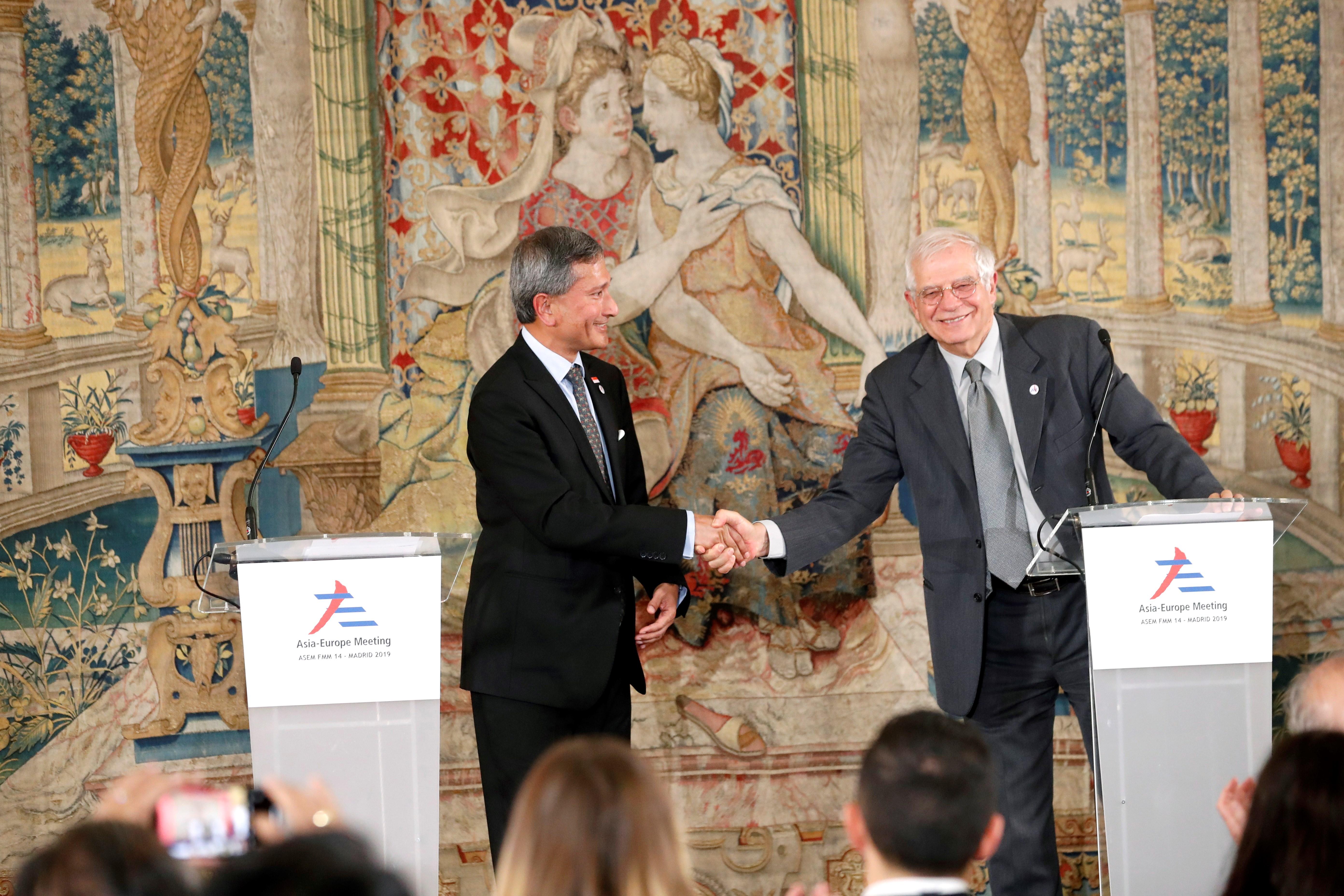The change of job from Spanish foreign minister to High Representative of the European Union for Foreign Affairs and Security Policy hasn't changed who Josep Borrell is. This Monday, he said he's not surprised by the situation of former Catalan president Carles Puigdemont in Belgium, comparing it to that of ETA member Natividad Jáuregui, who's living there "peacefully".
"In Belgium, Flanders legal authorities still haven't been so kind as to heed a European warrant for a known ETA member who is sought for violent crimes and who remains peacefully in Belgium because the judges haven't found it opportune for her to be put on trial in Spain. If that's been happening for years, it shouldn't surprise us that other things happen", he said when asked about the situation of Puigdemont and former minister Toni Comín and Lluís Puig after a Brussels court postponed yesterday's hearing on their extradition.
Borrell was speaking in a press conference alongside the foreign minister of Singapore, Vivian Balakrishnan, at the end of the Asia-Europe Meeting held in Madrid.
European justice
Asked whether the new European Commission is considering changing the European Arrest Warrant system, he said that although not an expert on the topic, he believes it's "clear that it can be improved". "Especially through mechanisms which create mutual confidence between the legal powers of the countries, that judges should talk more between themselves and if they have any doubts they should ask and clarify it".
He said that the European legal space is based on created at a supranational level the same mechanisms that exist in the legal systems of each member state. He said the process won't happen overnight, that it takes time to build mutual trust.
In any case, he wanted to play down the clashes that it can spark between states. He noted that it's judges, not governments, who issue the warrants and that requests can "clash with cultural practices, with history".
Natividad Jáuregui
The ETA member Borrell referred to, Natividad Jáuregui, is accused of two murders in 1981: police officer Francisco Francés and lieutenant colonel Ramón Romeo Rotaeche. She is also alleged to have been involved in another attack, shooting at two police vehicles, injuring a number of people. From Spain, she went first to France then to Mexico, from where her husband and fellow former ETA member, José Antonio Borde, was extradited in 2002. He remains in prison in Spain. She moved to Belgium, whose judges have argued against her extradition saying her rights could be threatened in Spain.

